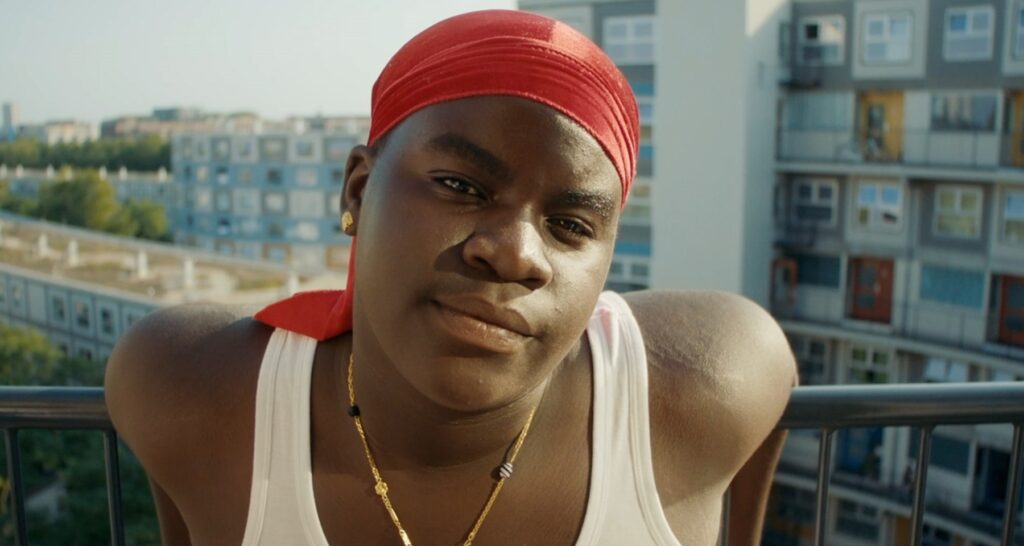Shabu had messed up big time. The fourteen-year-old Peperklip resident wrecked his Grandma’s car during her trip to Suriname, and needed to buy a new one by the time she got back in order to regain some of the families’ trust.

Suggestions from Mum of selling popsicles and stacking shelves at the cornershop were met with reluctance, too boring and arduous a way to make money. Yet, he couldn’t leave the grounds with his girlfriend Stephy or best friend Jahnoa until the debt was repaid. The dream solution? Using his passion for music to put on a concert in the park for the whole community.
What’s unique about this coming-of-age drama is that it’s also a documentary. Director Shamira Raphaëla was tired of covering dour topics and “wanted to break the tradition of poverty porn”. As she searched for something more positive in her local area, the residents of Rotterdam pointed in the direction of Shabu and his larger-than-life personality.
Although initially hesitant, a mutual trust began between the rapper and director. Discussed during the Q&A with Dr Mena Fombo that followed Watershed’s opening night screening, Shabu claimed to have spent “one week contemplating, but got comfortable”. Raphaëla added that it “also helped being the chaperone in this case”, so they quickly became inseparable as it was the only way for Shabu to circumvent his punishment.

This bond allowed Raphaëla to draw the most from the Peperklip neighbourhood. Having a crew on standby for six weeks gave her time to explain the shooting and editing process to the cast, which granted swift collaboration between takes. Therefore, she could “help get their voices out without forcing”, meaning formulaic talking heads are replaced by genuine conversations with no-one playing up to the camera.
Matching Shabu’s vibrant energy further removed the film from any dull documentary tropes. Bright colour grading pushed the joyous moments higher and the sadder notes lower rather than a consistent monotone. Instead of narration, his drumming dictated the mood, often combined with short sharp cuts to create a chaotic vibe. This complemented the overall structure too, kept to a tight seventy-five minute runtime without feeling rushed.
Hence, Raphaëla certainly achieved her intentions to “stimulate all senses”, as well as making sure she avoided exoticising this tight-knit community. Over-the-shoulder transition shots and close-ups during intense conversations placed us on the estate rather than voyeuristically watching from afar. They are not subjects of a piece but rather active characters in their own stories.
Altogether, I found the dramatised storytelling method made it easier to relate with Shabu and more entertaining than many traditional documentaries. I laughed along with his cheeky antics and cringed at ego-driven dialogue, but mostly empathised with the amount of stress he had placed on himself to succeed.
Trying to navigate the balance between relationships, earning money, and pursuing passions is clearly a daily struggle for all of us, not just adults. What Shabu has learnt from his journey is “to have self-confidence, learn from mistakes and that you don’t need to be stubborn”. My take-away is to make sure I’m having nearly as much fun building a career as Shabu is living the dream.
Shabu will be showing at The Watershed until Thursday 13 July. Book here for tickets.
Nathan Hardie is the newest member of our team and is developing a career as a film critic and scriptwriter. Find out more about Nathan and the projects he’s been working on here
READ MORE: